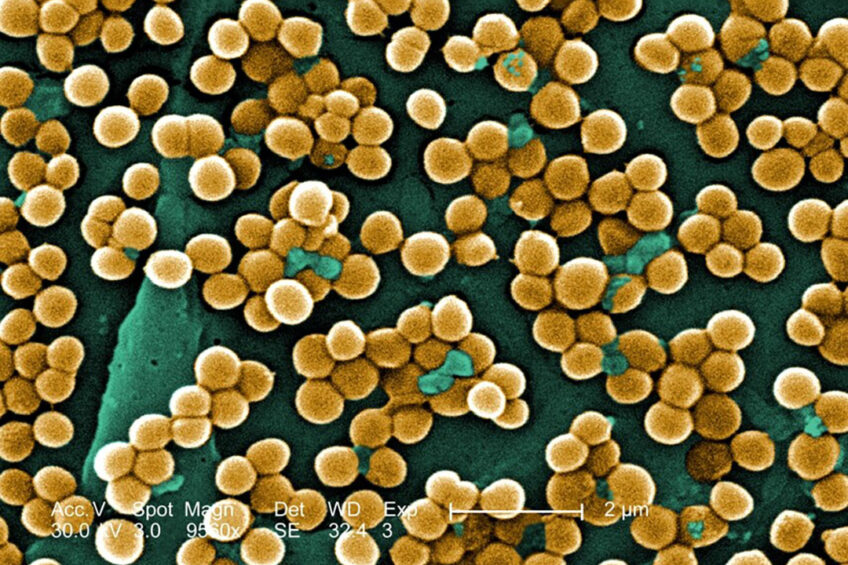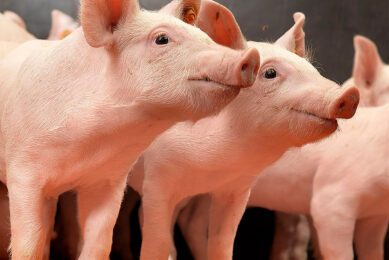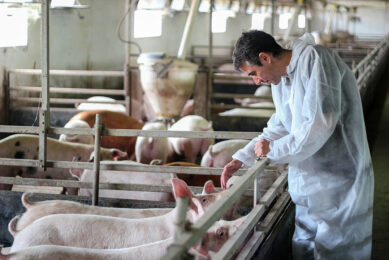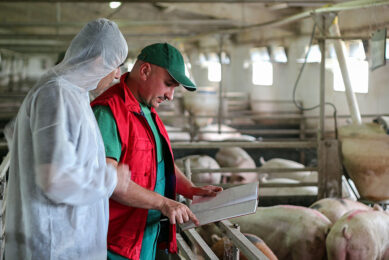Ventilation does not spread MRSA outside pig houses

Danish researchers put ventilation to the test in an attempt to see if methicillin-resistant Staphylococcus aureus (MRSA) could also spread outside pig houses.
The airborne spread of livestock-associated MRSA (LA-MRSA) through pig house ventilation hardly appears to be a source of infection for people outside the pig houses. That was the conclusion of recent Danish research, conducted by scientists from the Statens Serum Institut, the Technical University of Denmark as well as Aarhus University. The study was published in the peer-reviewed magazine Frontiers in Veterinary Science.
Air samples from ventilation systems
MRSA spread among pig producers and farm employees is being considered a risk when working with pigs. The Danish scientists researched whether or not MRSA could also spread outside the pig houses via ventilation systems. Between October and December 2018, the team took air samples from the ventilation system’s outlets as well as the farm’s surroundings. They compared the results with meteorological data, the pig house’s own bacteriological air samples, soil around the farm as well as nasal samples from individuals participating in the sampling.
Limited spread of MRSA
The scientists wrote that they detected MRSA up to 300 m (the maximal measuring distance) from the swine farm in the air but only at low levels at distances above 50 m (0.085 CFU/m3 at a distance of 50 m in the wind plume).
In addition, they detected MRSA in sock samples obtained at the soil surfaces up to 400 m (the maximal measuring distance) from the farm building. The proportion of MRSA positive soil samples decreased from roughly 80 to 30% with increasing distance from the farm. A total of 25 human nasal samples were sampled after the farm visits after the participants had stayed in the surroundings of the farm for an average of 10.5 hours.
When leaving the farm, only 2 of the samples (8%) were LA-MRSA-positive both obtained from one individual who was the one who had sampled the ventilation shafts.

More research from Aarhus University: 3 ways to improve sow handling at slaughterhouses
Airborne spread of MRSA is not an important route
In conclusion, the researchers wrote, airborne spread of MRSA from swine farms does not seem to be an important route for human contamination for individuals staying a whole working day outside a swine farm.
The research article was authored by Øystein Angen and Anders Rhod Larsen, Statens Serum Institut, Copenhagen, Denmark; Martin Weiss Nielsen, Technical University of Denmark, Kongens Lyngby, Denmark; and Per Løfstrømand Niels Bohse Hendriksen, Aarhus University, Roskilde, Denmark.
 Beheer
Beheer








 WP Admin
WP Admin  Bewerk bericht
Bewerk bericht